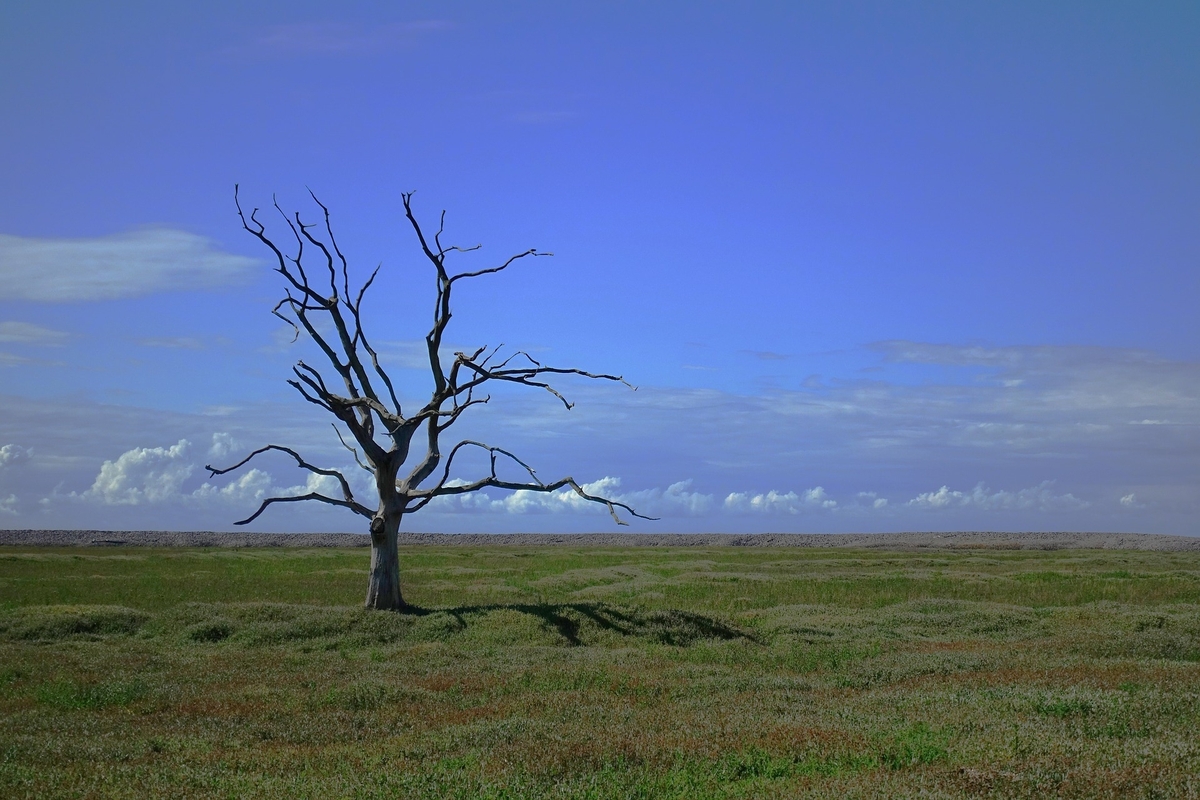In the heart of Zimbabwe’s Hwange National Park, a tragedy is unfolding as dozens of elephants succumb to the relentless assault of climate change impacts. The vast expanse of Hwange, home to a staggering 45,000 elephants, is witnessing a heart-breaking scenario where these majestic creatures are perishing from thirst. The culprits? A combination of the El Nino global weather pattern and the ominous spectre of climate breakdown. As the COP28 discussions on climate action echo through the halls of global discourse, the haunting images of elephant carcasses near dwindling watering holes stand as a stark reminder of the urgency to address climate change. Hwange, devoid of a major river, relies on solar-powered boreholes to sustain its diverse wildlife. However, the cruel impact of climate breakdown has caused a decline in surface water, pushing these remarkable animals to the brink.
The juxtaposition of nature’s plight against the backdrop of human-induced climate change is both heart-wrenching and infuriating. A fully grown elephant requires a staggering 200 litres of water daily, a necessity that the solar-powered pumps at the 104 boreholes cannot fulfil as water sources dwindle. This dire situation has led to a macabre cycle, where deceased elephants become easy prey for lions and vultures. Ecologists at the park poignantly declare that the park has been witnessing the impact of climate change in the form of reduced rains. The ominous revelation is exacerbated by Zimbabwe’s vanishing rainy season, with barely a drop in the current year. The harsh reality is that the drought is projected to persist into 2024, according to Zimbabwe Meteorological Services, deepening the crisis for both wildlife and local communities that are dependent on these ecosystems. As animals traverse vast distances in search of sustenance, conservation groups are mobilising to alleviate the suffering.
Advertisement
Desilting watering holes and increasing water supply through solar wells are valiant efforts, but they underscore a larger predicament ~ the overburdened capacity of national parks. With nearly 100,000 elephants in Zimbabwe and resources to support only a fraction of them, the delicate balance of ecosystems is unravelling. The plight of Hwange’s elephants should serve as a wake-up call for global leaders at COP28 and beyond. It demands a paradigm shift in how we approach climate change, emphasising the interconnectedness of human actions and the fate of wildlife. The tragic scenes in Hwange echo the urgent need for sustainable practices, conservation, and international collaboration to combat the impending ecological catastrophe.
The silent tragedy of Hwange’s elephants lays bare the consequences of climate change, urging humanity to reflect on the profound responsibility we bear in preserving the delicate tapestry of our planet. Only through decisive, collective action can we hope to rewrite the narrative for Hwange’s elephants and countless other species facing a perilous future in the wake of climate breakdown.











